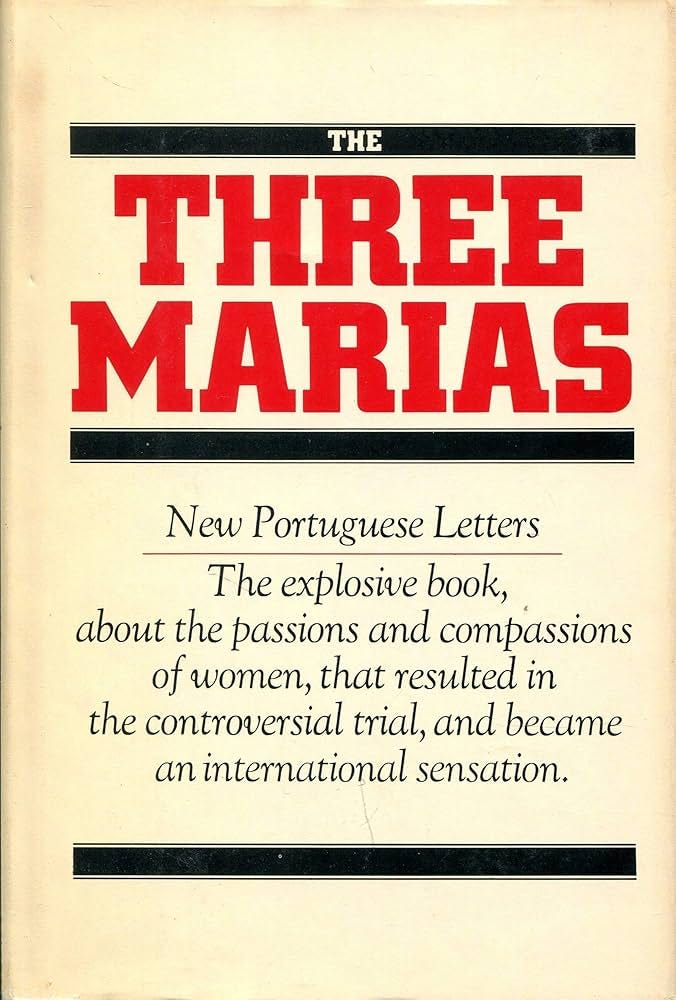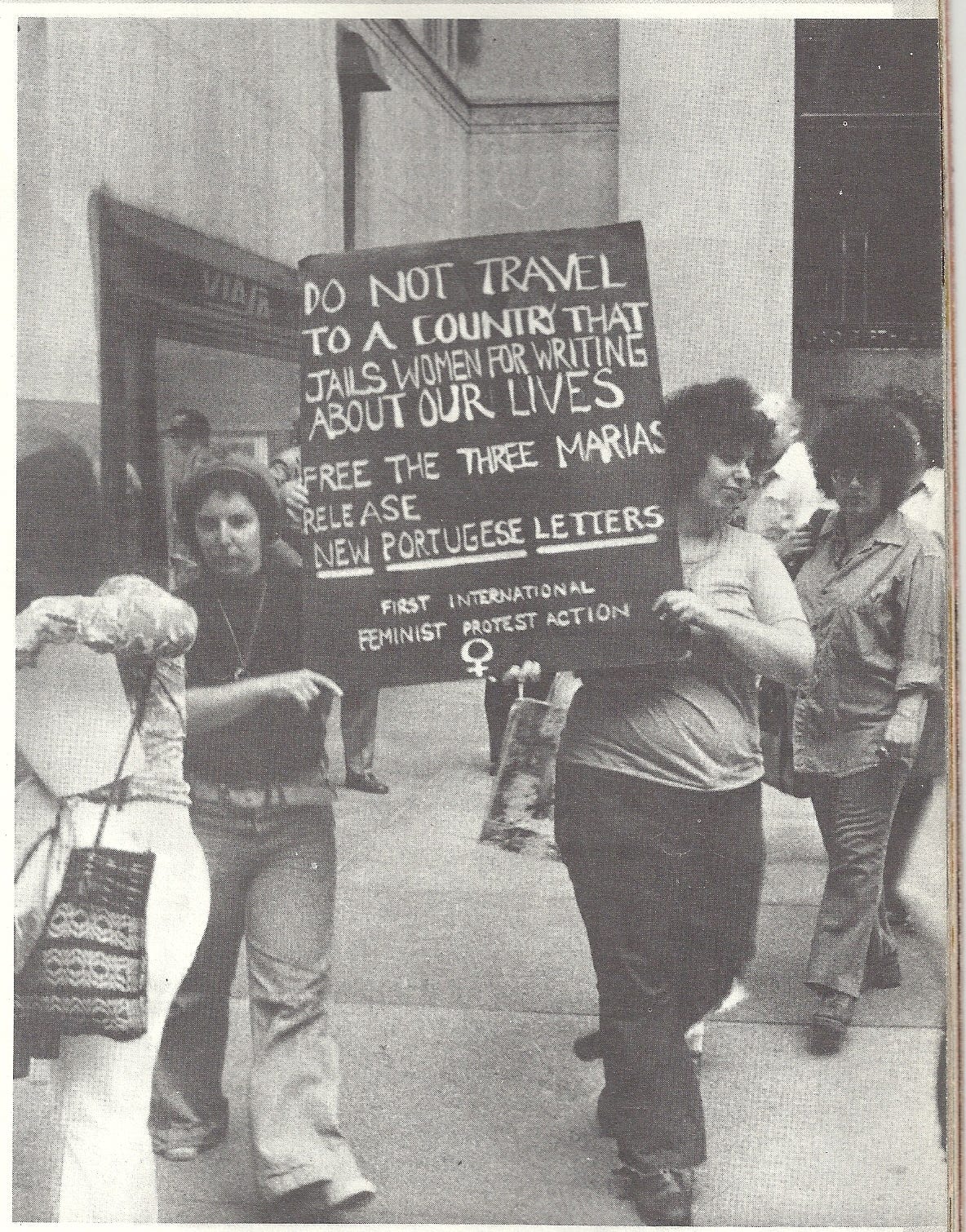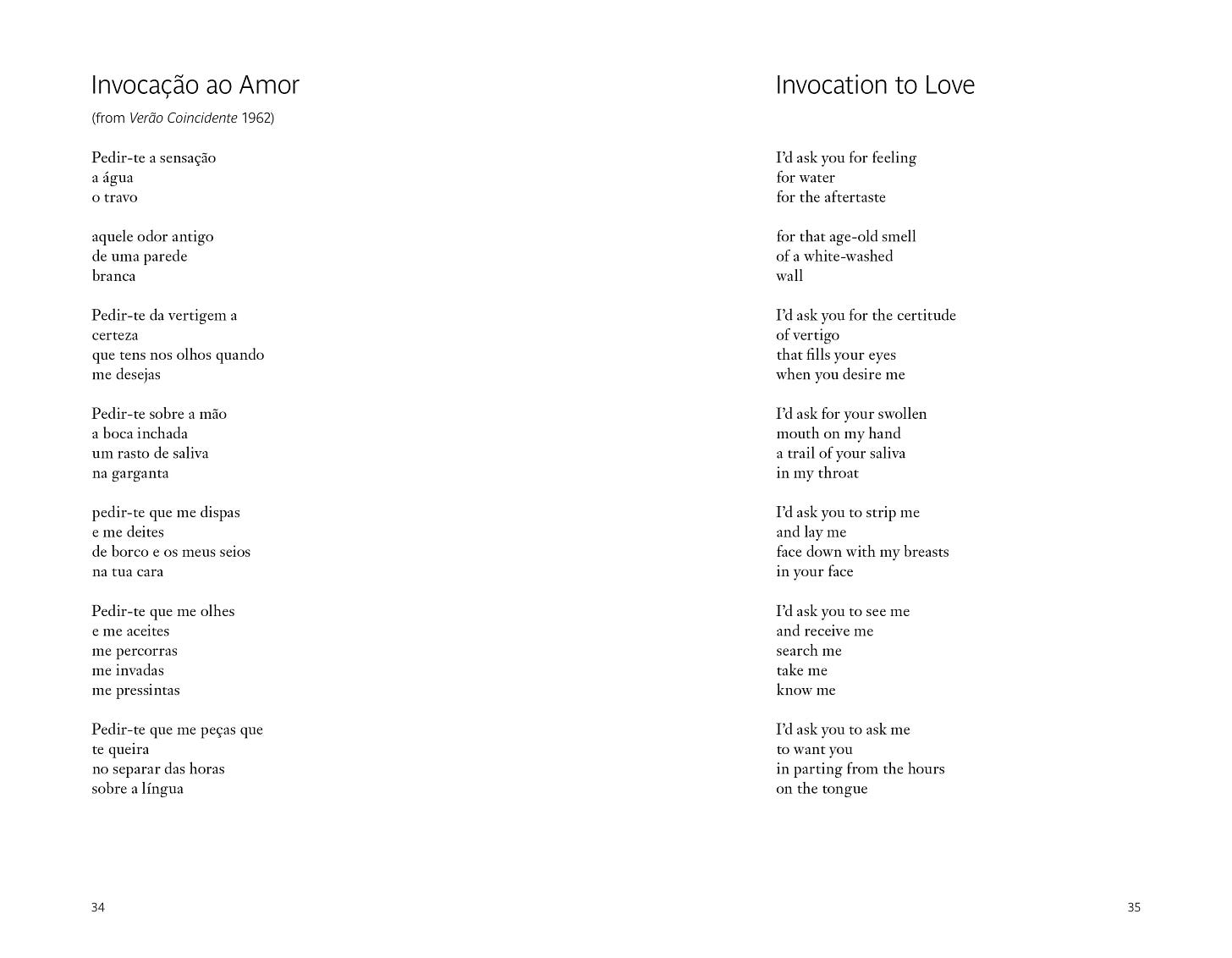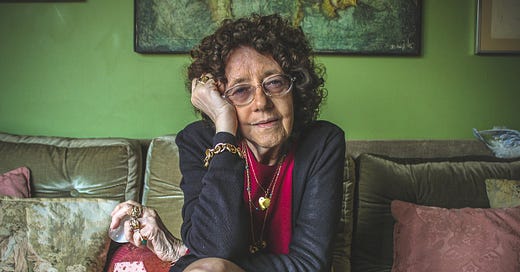Writer Maria Teresa Horta on the BBC's "100 Women for 2024"
Maria Teresa Horta, who co-authored a book banned and deemed an outrage to public morals in the 1970s, is a leading light in Portuguese literature, acclaimed as an author, literary critic, journalist.
What?
The BBC has included the Portuguese writer and journalist Maria Teresa Horta in its list of 100 most inspiring and influential women from around the world in 2024.
She is described as “as one of Portugal’s most prominent feminists and author of many award-winning books, (…) best known as co-author of the internationally acclaimed Novas Cartas Portuguesas (New Portuguese Letters),” co-authored with Maria Isabel Barreno and Maria Velho da Costa.
The Three Marias
In 1971, during the fascist Estado Novo regime in Portugal, the three women (known thereafter as “The Three Marias”) wrote a collaborative work entitled Novas Cartas Portugueses (New Portuguese Letters).
The book, in which the authors denounced the oppression to which women were subjected in the context of the dictatorship, fascist violence, the colonial war, emigration and the poverty that dominated the country, was banned and censored by the regime.

The banning of the work by the authoritarian government in the year of its publication, 1972, and the trial of the case known as ‘Três Marias’ (The Three Marias), for allegedly offending public morals, according to censorship standards, ‘made headlines and inspired protests around the world’, writes the BBC.

The international impact of the work came shortly after it was publicised in France by the writer Simone de Beauvoir. The focus arose with the coverage of the trial by international media (including Le Monde, Time, The New York Times, Nouvel Observateur and US television), feminist demonstrations at various Portuguese embassies abroad and the public defence of the work and the authors by various international personalities, such as Marguerite Duras, Doris Lessing, Iris Murdoch and Delphine Seyrig.
These actions led to the case being voted, in June 1973, at a conference of the National Organisation for Women (NOW) in Boston, as the first international feminist cause.
The case was symbolic in the fall of the regime by the Revolution of 25 April 1974, which celebrated its 50th anniversary this year, the BBC recalls.
Biography
She was born in Lisbon, Portugal in 1937. She worked as a journalist for several Lisbon publications (Diário de Lisboa, República, O Século, A Capital, Jornal de Letras e Artes) during the 1960s (one of the few women to do so) and interviewed such renowned literary figures as Simone de Beauvoir, Marguerite Duras, and Christa Wolf.

She edited the magazine Mulheres (Women) and wrote plays and fiction pieces. She is most renowned as a poet, a career launched in 1960 with the publication of Espelho Inicial (First Mirror). Soon after this she began her association with the group Poesia 61, through which she became acquainted with two fellow poets, Maria Isabel Barreno and Maria Velho da Costa.
Maria Teresa Horta has been widely honoured throughout her literary career, most notably in recent years with the 2017 Authors Prize in the best poetry book category for ‘Anunciações’, the Medal of Cultural Merit awarded to her by the Ministry of Culture in 2020, the Casino da Póvoa Literary Prize, which she won in 2021 for her work ‘Estranhezas’, and the award of the Grand Officer of the Order of Liberty in 2022.
With books published in Brazil, France and Italy, Maria Teresa Horta was the first woman to hold leadership positions in the film industry in Portugal and is considered one of the exponents of feminism in Portuguese-speaking countries.
She has two books translated into English:
Seven Poems from Poesia Reunida (Collected Poetry), Translated by Dean Thomas Ellis (here).
Point of Honour, Selected Poems of Maria Teresa Horta, Translated by Lesley Saunders (here).
Earlier this, journalist Patrícia Reis published an authorized biography of Maria Teresa Horta entitled The Disobedient (still no English translation).
The BBC’s 100 Women
This year's ‘BBC 100 Women’ list includes more well-known names, such as US actress Sharon Stone, British artist Tracey Emin, French rape survivor Gisèle Pelicot and Iraqi Nobel Peace Prize winner Nadia Murad.
Brazilian prostitutes’ rights activist Lourdes Barreto, gymnast Rebeca Andrade and biologist Silvana Santos are also on the list, which took into account impartiality and regional representation.
The BBC points out that throughout the year women ‘had to work hard’ to find new levels of resilience and faced ‘deadly conflicts and humanitarian crises’ in Gaza, Lebanon, Ukraine or Sudan and witnessed the ‘polarisation of societies after a record number of elections around the world’.
The BBC 100 Woman team drew up the list based on names collected through research and suggested by the BBC World Service's network of 41 language teams, as well as BBC Media Action.
All the female protagonists have given their consent to appear, and they are not presented in any particular order.





Fascinating. I was unaware of the trial of the authors of the book ‘New Portuguese Letters’ in the ‘70s on the basis of ‘offending public moral’ - go the ‘Three Maria’s’ 🙌